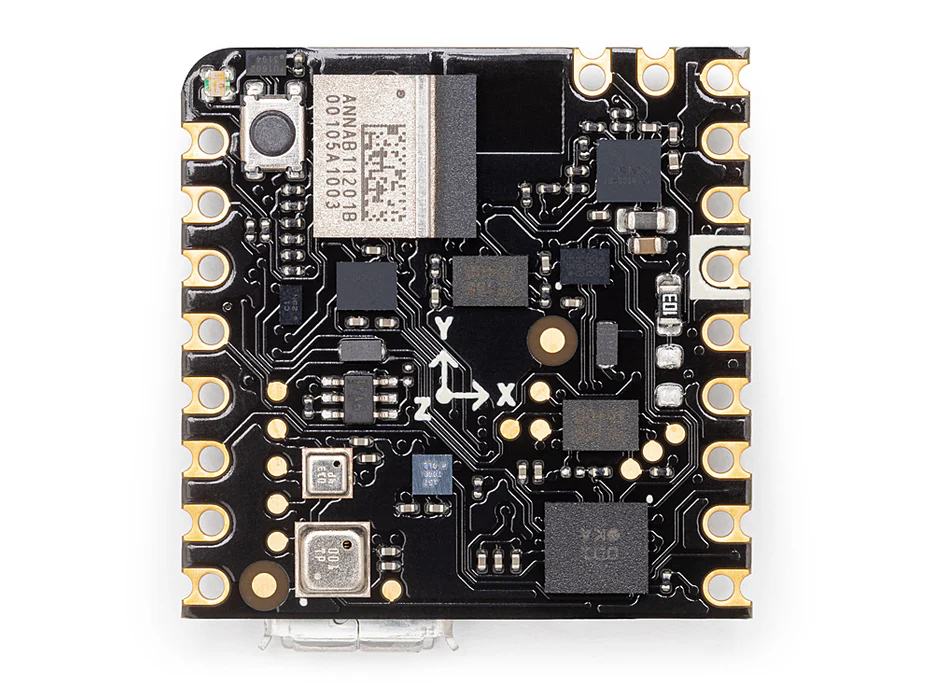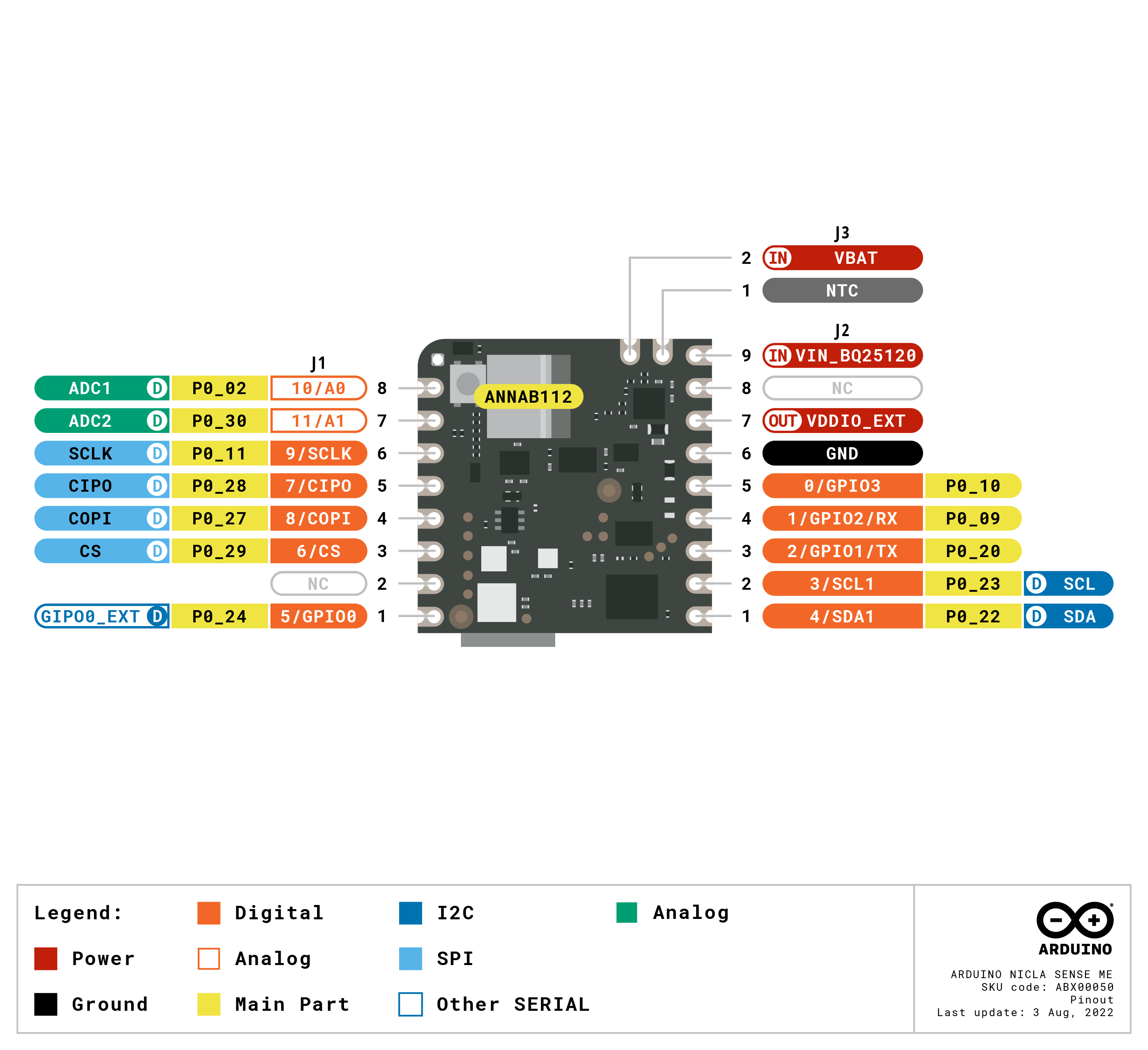
Nicla Sense ME
Bring smart sensing solutions to the edge, with the high-performance, low-power board that packs state-of-the-art Bosch Sensortec technology into our smallest form factor yet.
Overview
The Nicla Sense ME is a tiny, low-power tool that sets a new standard for intelligent sensing solutions. With the simplicity of integration and scalability of the Arduino ecosystem, the board combines four state-of-the-art sensors from Bosch Sensortec:
- BHI260AP motion sensor system with integrated AI
- BMM150 magnetometer
- BMP390 pressure sensor
- BME688 4-in-1 gas sensor with AI and integrated high-linearity, as well as high-accuracy pressure, humidity and temperature sensors.
Designed to easily analyze motion and the surrounding environment – hence the “M” and “E” in the name – it measures rotation, acceleration, pressure, humidity, temperature, air quality and CO2 levels by introducing completely new Bosch Sensortec sensors on the market.
Its tiny size and robust design make it suitable for projects that need to combine sensor fusion and AI capabilities on the edge, thanks to a strong computational power and low-consumption combination that can even lead to standalone applications when battery operated.
Part of Arduino Pro’s new Nicla family of modular, intelligent products that are easy to use, cost effective, versatile and accessible, the Sense ME has a new, tiny form factor that is also compatible with the Arduino MKR and Portenta ranges.
Key benefits
- Tiny size, packed with features
- Low power consumption
- Add sensing capabilities to existing projects
- When battery-powered, becomes a complete standalone board
- Powerful processor, capable of hosting intelligence on the Edge
- Measures motion and environmental parameters
- Robust hardware including industrial-grade sensors with embedded AI
- BLE connectivity maximizes compatibility with professional and consumer equipment
- 24/7 always-on sensor data processing at ultra-low power consumption
Need Help?
Check the Arduino Forum for questions about the Arduino Language, or how to make your own Projects with Arduino. If you need any help with your board, please get in touch with the official Arduino User Support as explained in our Contact Us page.
Warranty
You can find your board warranty information here.
Tech specs
|
Microcontroller |
64 MHz Arm® Cortex M4 (nRF52832) |
|
Sensors |
BHI260AP - Self-learning AI smart sensor with integrated accelerometer and gyroscope, BMP390 - Digital pressure sensor, BMM150 - Geomagnetic sensor, BME688 - Digital low power gas, pressure, temperature & humidity sensor with AI |
|
I/O |
Castellated pins with the following features: 1x I2C bus (with ext. ESLOV connector), 1x serial port, 1x SPI, 2x ADC , programmable I/O voltage from 1.8-3.3V |
|
Connectivity |
Bluetooth® 4.2 |
|
Power |
Micro USB (USB-B), Pin Header, 3.7V Li-po battery with Integrated battery charger |
|
Memory |
512KB Flash / 64KB RAM, 2MB SPI Flash for storage, 2MB QSPI dedicated for BHI260AP |
|
Interface |
USB interface with debug functionality |
|
Dimensions |
22,86 mm x 22,86 mm |
|
Weight |
2 g |
Conformities
Resources for Safety and Products
Manufacturer Information
The production information includes the address and related details of the product manufacturer.
Arduino S.r.l.
Via Andrea Appiani, 25
Monza, MB, IT, 20900
https://www.arduino.cc/
Responsible Person in the EU
An EU-based economic operator who ensures the product's compliance with the required regulations.
Arduino S.r.l.
Via Andrea Appiani, 25
Monza, MB, IT, 20900
Phone: +39 0113157477
Email: support@arduino.cc




